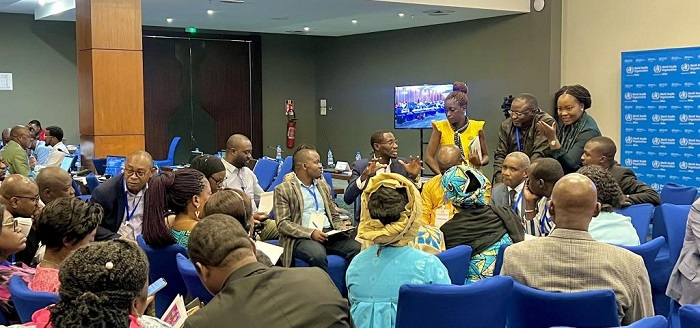A high-level regional meeting in Libreville, Gabon, brought together African ministers, international experts and civil society leaders to address the public health and environmental risks posed by mercury-containing skin-lightening cosmetics.

Following a two-day technical workshop, the event culminated on Wednesday, January 22, 2025, with the adoption of the “Libreville commitment on the elimination of mercury-containing skin-lightening cosmetics in Africa”. This agreement calls for regional collaboration to foster stronger regulations, enhanced enforcement measures and public awareness campaigns to combat these harmful products.
The commitment holds particular significance as it is grounded in a decision made by the Conference of the Parties of the Minamata Convention on Mercury, a treaty to which Africa has the highest number of Parties. The Convention, under Article 4, phase outs production and trade of the listed mercury-added products, and the amendment adopted at the fifth meeting of the Conference of the Parties (COP-5) explicitly bans the use of any mercury in cosmetics.
During the opening remarks at the high-level segment, Monika Stankiewicz, Executive Secretary of the Minamata Convention, pointed out that “cosmetics containing mercury is a key example of how the use of mercury impacts people in their everyday lives. There are adverse health effects of the inorganic mercury contained in skin-lightening creams and soaps”. She added that “the COP’s decision reflects the firm belief that the use of mercury and, in fact, any other hazardous substances in cosmetics is unacceptable and cannot be allowed to continue”.
COP-5 also agreed to investigate trade in mercury compounds, currently not regulated under the Convention, which is closely linked to the issue of illegal manufacture of mercury-containing cosmetics. Despite existing bans, these cosmetics are often easily obtainable online and in local markets around the world. Alongside regulatory measures, Stankiewicz emphasised the importance of addressing gender inequality and combating harmful advertising practices, noting that many users of skin-lightening products are unaware of the health risks or unable to resist societal pressures regarding beauty standards.
The two-day technical workshop leading up to the commitment gathered over 150 experts and delegates from 13 African countries. Conducted by experts from the World Health Organisation (WHO), United Nations Environment Programme (UNEP), Biodiversity Research Institute (BRI) and civil society organisations, the sessions reviewed the dangers of mercury exposure and the need for a comprehensive strategy across the region.
The workshop took place under the Global Environment Facility (GEF) funded project Eliminating mercury skin lightening products and led by UNEP. The GEF serves as one part of the financial mechanism of the Minamata Convention.
Stankiewicz underlined that “this GEF project is of such great value to lead a global action to implement the Minamata Convention. I am pleased that three countries, Gabon, Jamaica, and Sri Lanka, joined forces with UNEP and WHO to pave the way to address this very multi-faceted challenges of mercury-added cosmetics and present model cases that other Parties can follow”.
Under the GEF project, the third meeting of the “Eliminating mercury skin lightening products” project stakeholders’ group will be held online on January 30. This event will feature the presentation of the main insights of a draft report on mercury-added cosmetics, as well as updates and lessons learned from Parties and stakeholders, and project key activities in 2025. Interested participants are invited to register using this link.
The ministers and other representatives who gathered in Gabon adopted the “Libreville commitment” and requested the Gabonese government to submit it to the African Council of Ministers in Charge of the Environment (AMCEN) and to the Secretariat of the Minamata Convention with the objective of its presentation at the sixth meeting of the Conference of the Parties (COP-6) in Geneva this November. The document is expected to stimulate productive discussion at COP-6 to accelerate the elimination of mercury-added cosmetics from the market.
